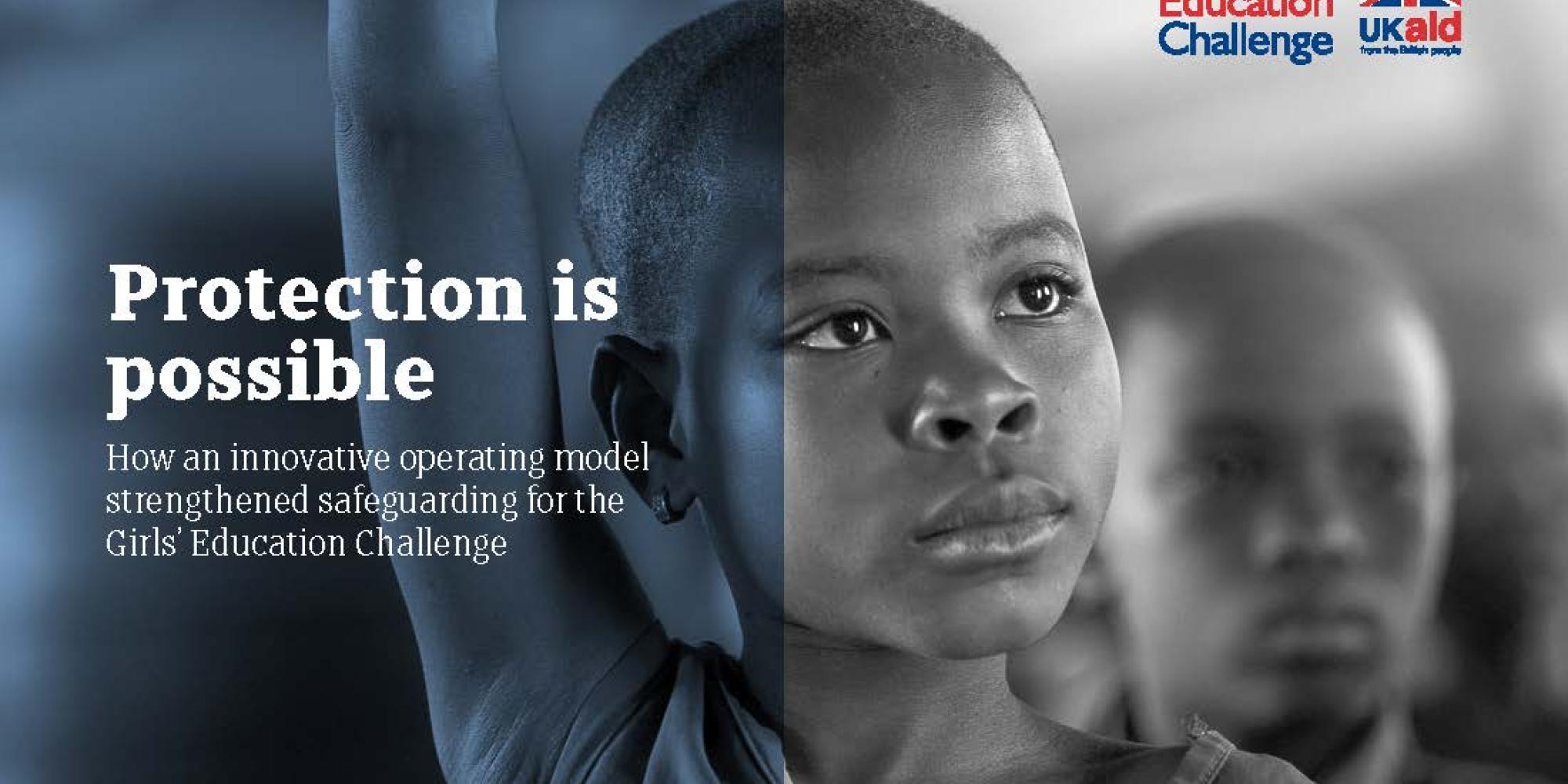
The FCDO Girls’ Education Challenge (GEC) was launched in 2012 as a 12-year commitment to reach the most marginalised girls in the world. Working across 41 projects delivered by over 30 implementing partners in 17 countries, the GEC is the largest global fund dedicated to girls’ education. The GEC has radically reformed its approach to safeguarding over the last three years, in line with the UK government’s new safeguarding policies, launched in 2018. From early 2019, the GEC Safeguarding Team, made up of SDDirect staff and consultants, set about developing and then implementing a new approach to safeguarding. As part of this new approach, the GEC launched a new Safeguarding Operating Model that is designed to help implementing partners meet the GEC 14 Minimum Standards for safeguarding. We deliberately moved away from a self-audited process with a traditional focus on compliance. Instead, we favoured an independent approach based on constant review, reflection and support. Our aim is always to increase the quality and implementation of safeguarding policies, practices and procedures, and strengthen safeguarding cultures within the GEC partner organisations.
Despite being at different levels with regards to meeting the Minimum Standards in 2019, all GEC implementing partners have shown how the Safeguarding Operating Model can work on the ground to protect children and adults from violence, exploitation and abuse.
The GEC’s Safeguarding Operating Model considers that five main areas of work will lead to strengthened political will and positive safeguarding cultures. These are:
- Audit: support in achieving meaningful compliance for implementing partners with Safeguarding Action Plans, sharing resources and technical support
- Capacity development: training partners through one-to-one support and webinars
- Mainstreaming across the GEC: mainstreaming standards across the wider programme
- Case management: support to improve case handling and use lessons learned to inform meaningful compliance
- Monitoring: maintaining high standards on individual projects.
The overall goal of the model is that girls, project staff and others working with implementing partners are protected from the perpetration of violence, exploitation, abuse and harassment through comprehensive safeguarding within the GEC and beyond. The model aims to multiply impact through uptake of the model itself and the tools associated with it by actors external to the GEC or through other projects implemented by implementing partners.
By the end of 2020, all GEC partners had successfully adopted a new, comprehensive approach to safeguarding. Technical support and oversight by the GEC Safeguarding Team emphasised quality over a more traditional due diligence approach. Implementing partners were assessed on the content of their safeguarding policies, practices and procedures rather than simply having them in place. We refer to this as ‘meaningful compliance’. Implementing partners are now implementing the new safeguarding approach and demonstrating culture change within their day-to-day work. Overall, the GEC’s Safeguarding Operating Model led to greater prioritisation of safeguarding by implementing partners, more competent case handling and, as a result, delivery of safer programming for girls and staff alike. 2020-21 has been one of the most challenging years for the GEC, with the implementing partners facing an unprecedented crisis as a result of COVID-19. The strong safeguarding foundations laid before 2020 enabled a safer and more effective COVID-19 response for the girls we support. When the COVID-19 pandemic started the GEC projects already had solid networks with girls and safeguarding reporting mechanisms were in place. Projects used their existing networks to ensure girls were safe. They adapted rapidly, ensuring materials (such as hygiene kits and learning materials) were distributed safely, and increased their communications with girls and their communities on safeguarding.
The GEC’s safeguarding approach has been highly influential across the Official Development Assistance (ODA) sector.





